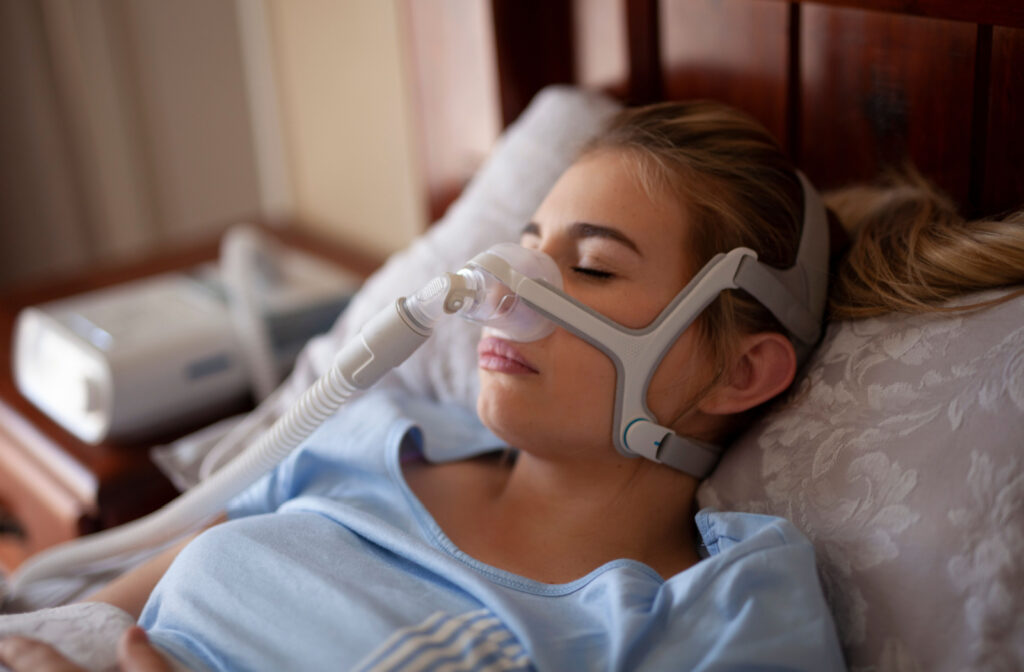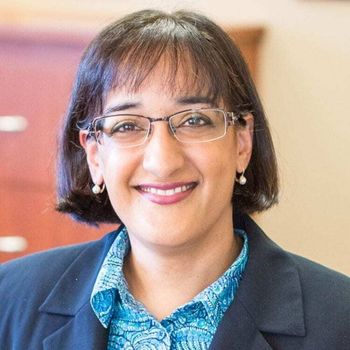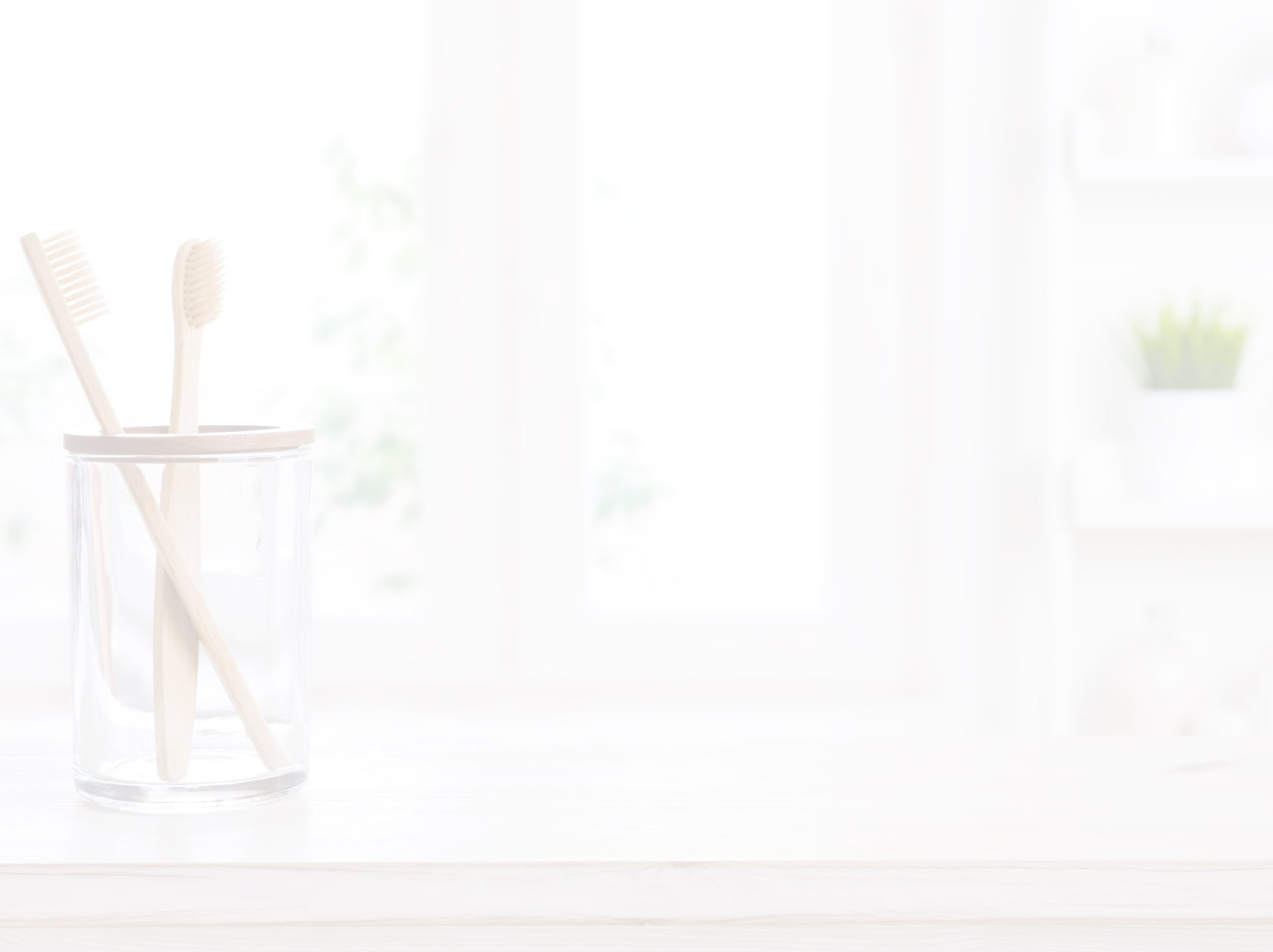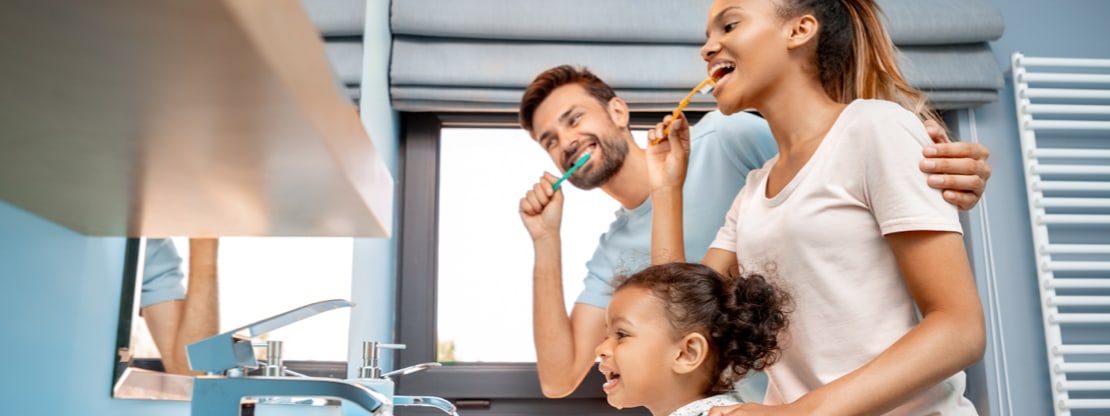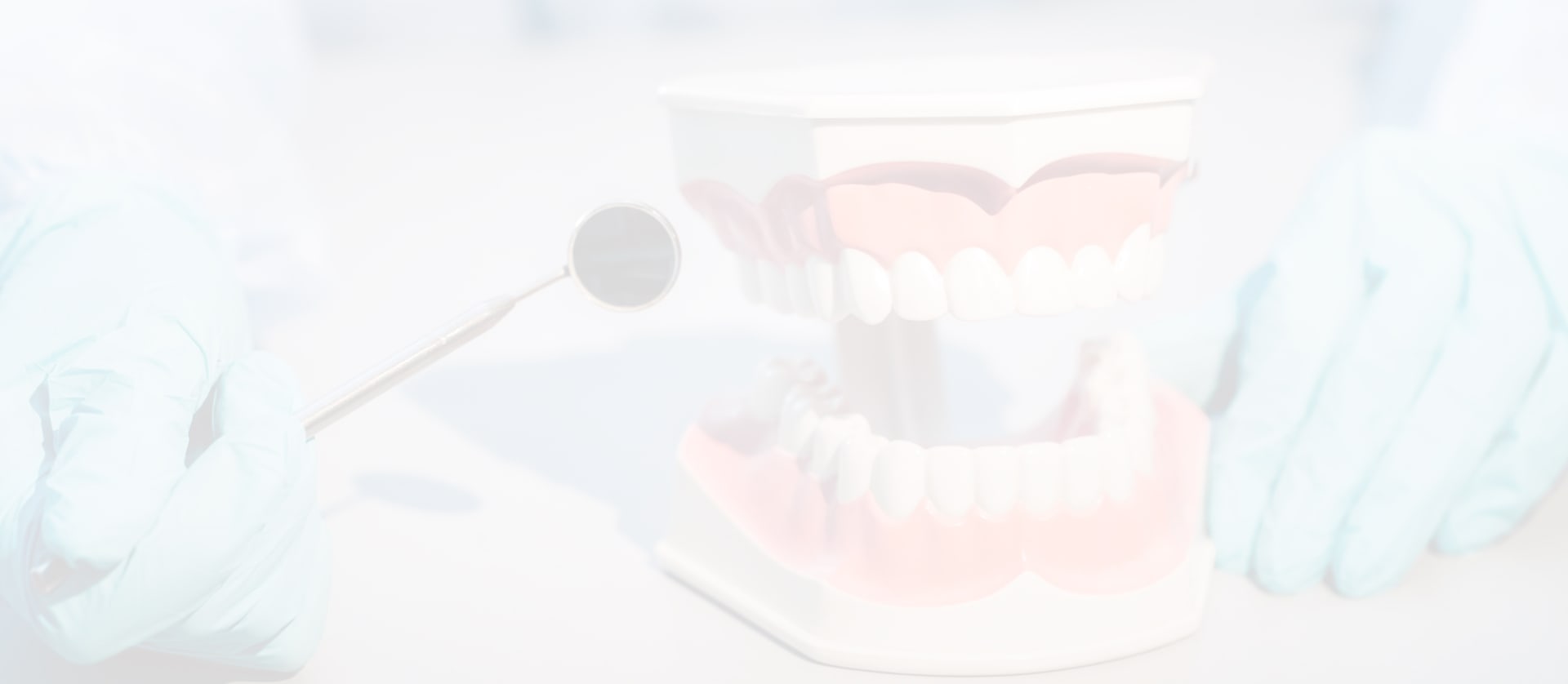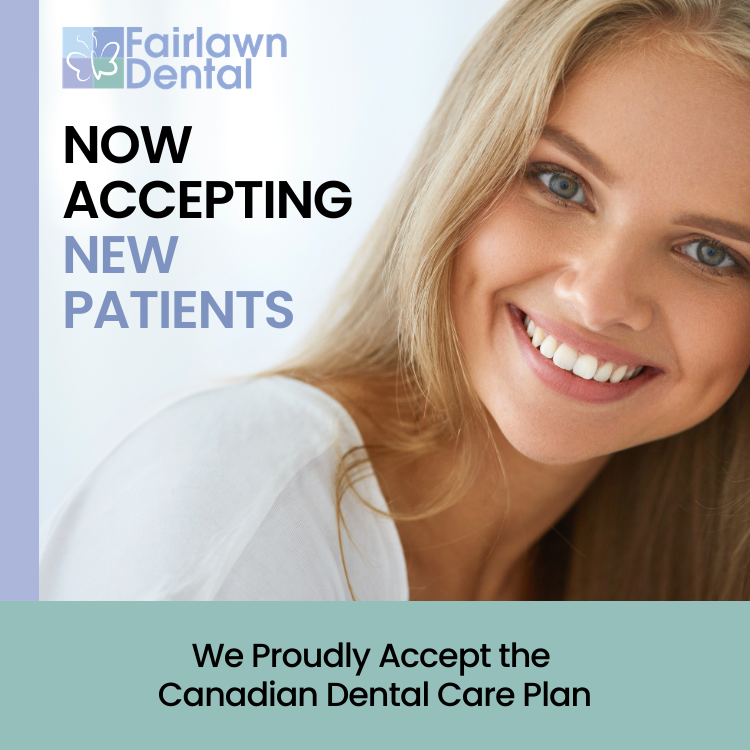Sleep apnea is a sleep disorder that causes you to stop breathing intermittently throughout the night, causing pauses in your breathing rhythm and affecting oxygen levels. These pauses can be as short as a few seconds or last for a minute or more. Thankfully, there are several treatment options available to help manage this condition.
Continuous positive air pressure (CPAP) machines and sleep apnea mouthpieces, sometimes called oral appliances, are 2 potential treatment options for sleep apnea. Each has its pros and cons, so it’s essential to discuss your options with your dentist. They can review the cause of your sleep apnea and symptoms and then recommend an effective treatment option.
What Is Sleep Apnea?
Sleep apnea is a disorder that causes you to momentarily stop breathing while sleeping repeatedly throughout the night. These pauses can happen anywhere from 5 to over 200 times in a single night.
These interruptions in your breathing pattern can lead to decreased oxygen levels and disrupt your sleep, resulting in daytime fatigue and other potential health problems.
Obstructive Sleep Apnea
The most common type of sleep apnea is obstructive sleep apnea (OSA). It occurs when your airway becomes blocked or narrowed during sleep, causing you to snore and often wake up gasping for air.
People who are overweight, have a large neck circumference, or have a family history of sleep apnea are more likely to develop OSA.
The symptoms of OSA include:
- Daytime fatigue
- Difficulty concentrating
- Morning headaches
- High blood pressure
Central Sleep Apnea
Central sleep apnea (CSA) is less common than OSA and occurs when there is a problem with the brain’s ability to control breathing during sleep.
Medical conditions such as heart failure, stroke, or brain tumours can cause CSA. Age and gender can also be risk factors. Those with CSA may experience difficulty falling asleep, insomnia, and sudden awakenings with shortness of breath.
Complex Sleep Apnea
Complex sleep apnea, sometimes called treatment-emergent central sleep apnea, emerges during the treatment of OSA and typically shows up within a few weeks of starting CPAP therapy. The good news is that this condition is often temporary and tends to improve when you continue using the CPAP machine.
What Is a Sleep Apnea Mouthpiece?
A sleep apnea mouthpiece, also known as an oral appliance, is a device you wear in your mouth while you sleep. It helps reposition your jaw and tongue to keep your airway open so you can breathe normally.
Pros of a Sleep Apnea Mouthpiece
A sleep apnea mouthpiece is small and portable, making it an excellent option for people who travel often. It is also easy to use and does not make any noise while in use, making it a good choice for light sleepers.
Cons of a Sleep Apnea Mouthpiece
A sleep apnea mouthpiece may not suit everyone, particularly those with severe sleep apnea, because it’s not always as effective as a CPAP machine, and you may not experience the same level of improvement in your sleep quality. Additionally, the mouthpiece may cause discomfort and soreness in your jaw, especially during the first few nights of use.
What Is a CPAP Machine?
A CPAP machine is a medical device that uses air pressure to keep your airway open while you sleep. It consists of a mask that fits over your nose and mouth, a tube that connects the mask to the machine, and a motor that generates air pressure.
Pros of CPAP
A CPAP machine is effective at managing sleep apnea and can significantly improve sleep quality. It can also help reduce blood pressure and lower the risk of stroke and heart disease.
Cons of CPAP
A CPAP machine can be cumbersome and noisy, making it difficult to use, particularly for light sleepers. The mask can also be uncomfortable, as it’s designed to be tight-fitting to prevent air leaks. CPAP machines also require a power source, making them challenging to use when you’re away from home.
Which Sleep Apnea Treatment Is Better?
Each treatment has its pros and cons, and neither is better or worse than the other. It ultimately comes down to your unique situation. A CPAP machine may be better for someone with severe sleep apnea, while an oral appliance may be better for a light sleeper or someone with minor sleep apnea.
Our team at Fairlawn Dental Centre is knowledgeable about sleep apnea treatments. Call us today to book an appointment with Dr. Ferhana Jaleel. She can sit down with you and listen to your symptoms and concerns before offering advice on effective treatment to get you sleeping soundly again.


